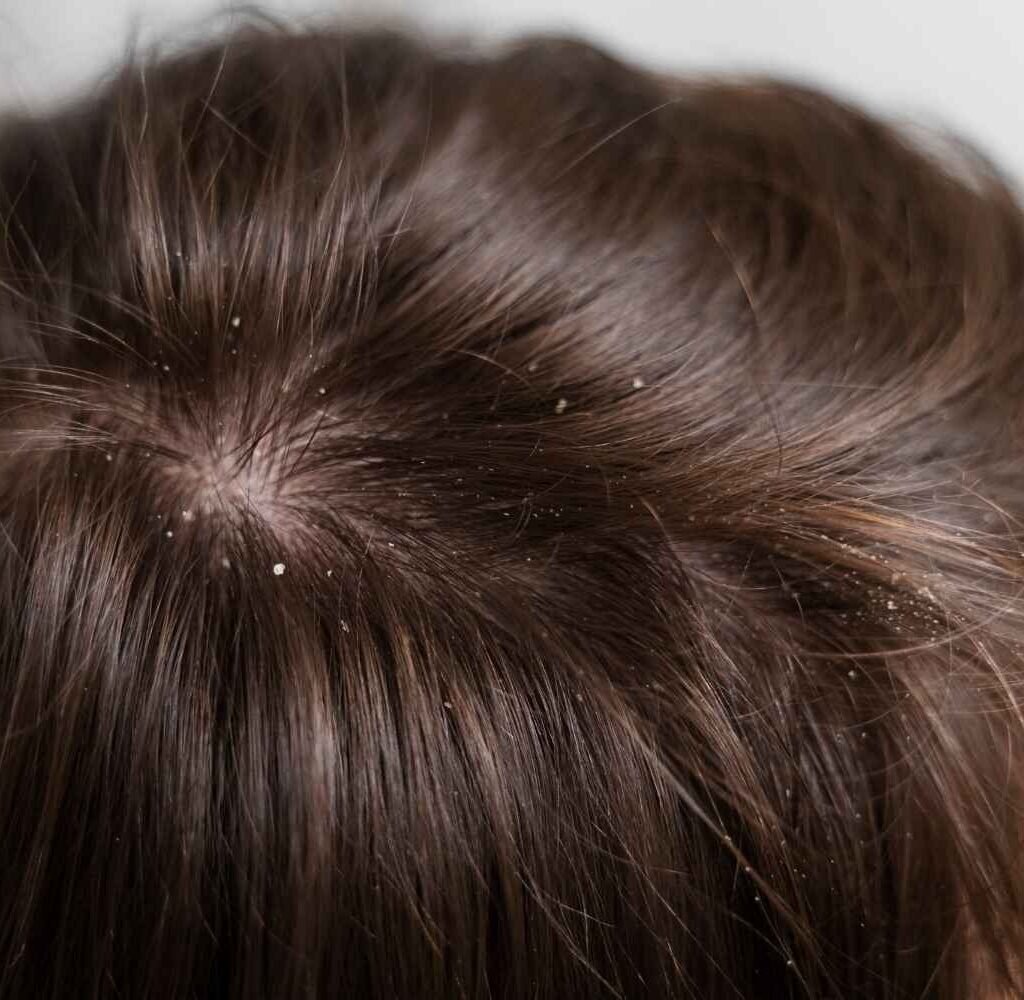Dandruff Treatment
Causes Of Dandruff
Microbial Theory + AJY
The most commonly accepted theory is the microbial theory, which suggests that dandruff is triggered by a microbe known as Malassezia Globosa. This microbe is naturally present in everyone’s scalp and feeds on sebum, the natural oils on your scalp that help keep your hair and skin moisturized. When the sebum breaks down, it produces oleic acid, causing irritation and inflammation of the scalp. This inflammation signals the brain to accelerate the shedding of skin cells, resulting in what we know as dandruff.
The Corneocyte Theory
The outermost layer of the epidermis, the stratum corneum (SC), serves as a protective barrier against moisture loss and the entry of microorganisms and environmental factors. Changes in the organization of corneocytes, lipid composition, and barrier function can lead to dandruff. An imbalance in lipid structure and disrupted desquamation process can aggravate dandruff symptoms. Studies show that individuals with dandruff react more strongly to histamine or oleic acid applied topically to the scalp, indicating a compromised epidermal barrier function.
Dry Skin
Dry skin can cause itchiness and flakiness on the scalp, commonly experienced during colder months in cold climates.
Irritated And Oily Scalp
Seborrheic dermatitis, an extreme form of dandruff, manifests as an irritated and greasy scalp with white flakes and yellow scales around certain parts of the face. Symptoms include itchiness, red rashes, and excessive oiliness.
Dirty Scalp
Failure to clean your scalp regularly allows dirt, dust, and oils from environmental pollution to accumulate, potentially leading to dandruff. Consistent shampooing is crucial for maintaining scalp cleanliness and avoiding dandruff.
Stress
Stress weakens the immune system, promoting the growth of the dandruff-causing microbe Malassezia Globosa. Scratching the scalp due to stress-induced itchiness can exacerbate the condition.
Treatment For Dandruff
PH Balanced Shampoos
Opt for pH-balanced shampoos to promote scalp health and combat dandruff. Ingredients like ketoconazole, salicylic acid, selenium sulfide, and tea-tree oil are effective in treating dandruff by targeting various causes.
Healthy Diet
A balanced diet rich in fats, fibers, Vitamin B, and zinc can help prevent dandruff and maintain scalp health.
Consult Your Dermatologist
If home care remedies fail to alleviate dandruff, consulting a dermatologist for a tailored anti-dandruff treatment is recommended.

